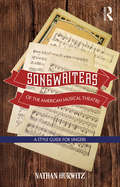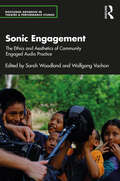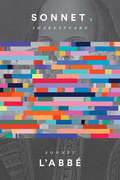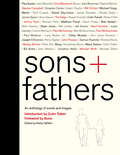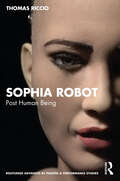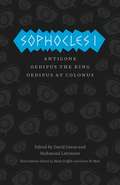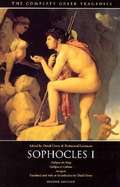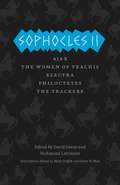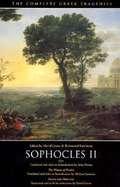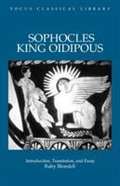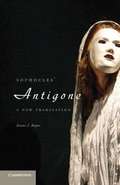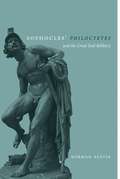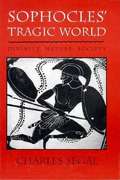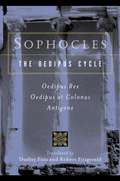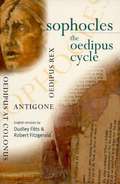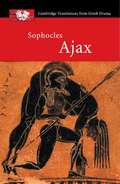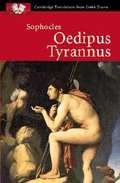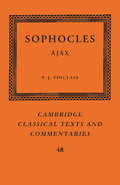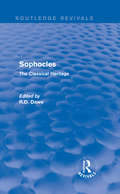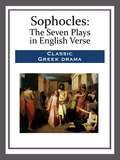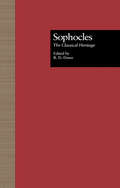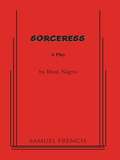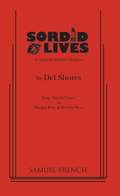- Table View
- List View
Songwriters of the American Musical Theatre: A Style Guide for Singers
by Nathan HurwitzFrom the favorites of Tin Pan Alley to today’s international blockbusters, the stylistic range required of a musical theatre performer is expansive. Musical theatre roles require the ability to adapt to a panoply of characters and vocal styles. By breaking down these styles and exploring the output of the great composers, Songwriters of the American Musical Theatre offers singers and performers an essential guide to the modern musical. Composers from Gilbert and Sullivan and Irving Berlin to Alain Boublil and Andrew Lloyd Webber are examined through a brief biography, a stylistic overview, and a comprehensive song list with notes on suitable voice types and further reading. This volume runs the gamut of modern musical theatre, from English light opera through the American Golden Age, up to the "mega musicals" of the late Twentieth Century, giving today’s students and performers an indispensable survey of their craft.
Sonic Engagement: The Ethics and Aesthetics of Community Engaged Audio Practice (Routledge Advances in Theatre & Performance Studies)
by Sarah Woodland Wolfgang VachonSonic Engagement examines the relationship between community engaged participatory arts and the cultural turn towards audio, sound, and listening that has been referred to as the 'sonic turn'. This edited collection investigates the use of sound and audio production in community engaged participatory arts practice and research. The popularity of podcast and audio drama, combined with the accessibility and portability of affordable field recording and home studio equipment, makes audio a compelling mode of participatory creative practice. This book maps existing projects occurring globally through a series of case study chapters that exemplify community engaged creative audio practice. The studies focus on audio and sound-based arts practices that are undertaken by artists and arts-led researchers in collaboration with (and from within) communities and groups. These practices include—applied audio drama, community engaged podcasting, sound and verbatim theatre, participatory sound art, community-led acoustic ecology, sound and media walks, digital storytelling, oral history and reminiscence, and radio drama in health and community development. The contributors interrogate the practical, political, and aesthetic potentialities of using sound and audio in community engaged arts practice, as well as its tensions and possibilities as an arts-led participatory research methodology. This book provides the first extensive analysis of what sound and audio brings to participatory, interdisciplinary, arts-led approaches, representing a vital resource for community arts, performance practice, and research in the digital age.
Sonnet's Shakespeare
by Sonnet L'AbbeBronwen Wallace Memorial Award-winning poet Sonnet L'Abbé returns with her third collection, in which a mixed-race woman decomposes her inheritance of Shakespeare by breaking open the sonnet and inventing an entirely new poetic form.How can poetry grapple with how some cultures assume the place of others? How can English-speaking writers use the English language to challenge the legacy of colonial literary values? In Sonnet's Shakespeare, one young, half-dougla (mixed South Asian and Black) poet tries to use "the master's tools" on the Bard's "house," attempting to dismantle his monumental place in her pysche and in the poetic canon.In a defiant act of literary patricide and a feat of painstaking poetic labour, Sonnet L'Abbé works with the pages of Shakespeare's sonnets as a space she will inhabit, as a place of power she will occupy. Letter by letter, she sits her own language down into the white spaces of Shakespeare's poems, until she overwhelms the original text and effectively erases Shakespeare's voice by subsuming his words into hers. In each of the 154 dense new poems of Sonnet's Shakespeare sits one "aggrocultured" Shakespearean sonnet--displaced, spoken over, but never entirely silenced. L'Abbé invented the process of Sonnet's Shakespeare to find a way to sing from a body that knows both oppression and privilege. She uses the procedural techniques of Oulipian constraint and erasure poetries to harness the raw energies of her hyperconfessional, trauma-forged lyric voice. This is an artist's magnum opus and mixed-race girlboy's diary; the voice of a settler on stolen Indigenous territories, a sexual assault survivor, a lover of Sylvia Plath and Public Enemy. Touching on such themes as gender identity, pop music, nationhood, video games, and the search for interracial love, this book is a poetic achievement of undeniable scope and significance.
Sons + Fathers
by Sons FathersSONS & FATHERS brings together a remarkable array of politicians and world leaders, writers and musicians, cultural icons and actors in this collection dedicated to fathers. A moving, fascinating and often funny collection of portraits, this anthology includes contributions from Bono, Paul Auster, Bob Geldof, George Clooney, Bill Clinton, Hanif Kureishi, Graydon Carter and Sting, to name a few.SONS & FATHERS tells the stories behind some of the great men of our age through their relationships with their fathers. From writing about memories and special moments, to open letters addressed to their fathers, these essays give readers an insight into otherwise private relationships. Including images and illustrations from the contributors, this exceptional anthology makes a wonderful gift and is highly collectable.
Sophia Robot: Post Human Being (ISSN)
by Thomas RiccioThis book considers David Hanson’s robots as a performative expression of our cultural moment, serving as a paradigm for the evolution of humanoid social robots.Mechanical beings have occupied the human imagination since antiquity. Now, they inhabit the pop-cultural imagination, embodying the apotheosis of humanity’s technological aspirations and dread. Sophia, Hanson’s most advanced robot, anticipates the future as she articulates the mythic pattern, narrative, anxieties, and hopes as old as humanity. Gendered as an attractive female with a face inspired by Queen Nefertiti and Audrey Hepburn, Sophia is a cipher, avatar, and turning point that brings humanity and technology a step closer to the emergence of a post-human species. The author is a transdisciplinary artist/scholar/educator working internationally in experimental performance, indigenous performance (ritual, shamanism), and social robotics. Hanson’s robots and Sophia are examined as performance media and events, as characters evolving as post-human narratives of technological beings. The emergent, complex, and collaborative relationships social robots have with technology, AI, performance, anthropology, mythology, psychology, sociology, popular culture, social media, politics, and economics are considered.
Sophocles
by P. J. FinglassSophocles' Ajax describes the fall of a mighty warrior denied the honour which he believed was his due. This new edition of the play presents a text and critical apparatus which take full advantage of recent advances in our understanding of Sophoclean manuscripts and scholarship. The introduction and commentary scrutinise all important aspects of the drama - from detailed analysis of style, language and metre to consideration of wider issues such as ethics, rhetoric and characterisation. Notorious dramaturgical problems, including the staging of Ajax's suicide, receive particular attention; so too do questions of literary history, such as the date of the play and Sophocles' creative interaction with previous accounts of the myth. The translation which accompanies the commentary ensures that this edition will be accessible to Hellenists of all levels of experience, as well as to readers with a general interest in the history of drama.
Sophocles I
by Sophocles David Grene Richmond Lattimore Glenn W. Most Mark GriffithSophocles I contains the plays "Antigone," translated by Elizabeth Wyckoff; "Oedipus the King," translated by David Grene; and "Oedipus at Colonus," translated by Robert Fitzgerald. Sixty years ago, the University of Chicago Press undertook a momentous project: a new translation of the Greek tragedies that would be the ultimate resource for teachers, students, and readers. They succeeded. Under the expert management of eminent classicists David Grene and Richmond Lattimore, those translations combined accuracy, poetic immediacy, and clarity of presentation to render the surviving masterpieces of Aeschylus, Sophocles, and Euripides in an English so lively and compelling that they remain the standard translations. Today, Chicago is taking pains to ensure that our Greek tragedies remain the leading English-language versions throughout the twenty-first century. In this highly anticipated third edition, Mark Griffith and Glenn W. Most have carefully updated the translations to bring them even closer to the ancient Greek while retaining the vibrancy for which our English versions are famous. This edition also includes brand-new translations of Euripides' Medea, The Children of Heracles, Andromache, and Iphigenia among the Taurians, fragments of lost plays by Aeschylus, and the surviving portion of Sophocles's satyr-drama The Trackers. New introductions for each play offer essential information about its first production, plot, and reception in antiquity and beyond. In addition, each volume includes an introduction to the life and work of its tragedian, as well as notes addressing textual uncertainties and a glossary of names and places mentioned in the plays. In addition to the new content, the volumes have been reorganized both within and between volumes to reflect the most up-to-date scholarship on the order in which the plays were originally written. The result is a set of handsome paperbacks destined to introduce new generations of readers to these foundational works of Western drama, art, and life.
Sophocles I: Oedipus The King, Oedipus at Colonus, Antigone (The Complete Greek Tragedies #8)
by Sophocles David Grene Richmond LattimoreIn nine paperback volumes, the Grene and Lattimore editions offer the most comprehensive selection of the Greek tragedies available in English. Over the years these authoritative, critically acclaimed editions have been the preferred choice of over three million readers for personal libraries and individual study as well as for classroom use.
Sophocles II
by Sophocles David Grene Richmond Lattimore Glenn W. Most Mark GriffithSophocles II contains the plays "Ajax," translated by John Moore; "The Women of Trachis," translated by Michael Jameson; "Electra," translated by David Grene; "Philoctetes," translated by David Grene; and "The Trackers," translated by Mark Griffith. Sixty years ago, the University of Chicago Press undertook a momentous project: a new translation of the Greek tragedies that would be the ultimate resource for teachers, students, and readers. They succeeded. Under the expert management of eminent classicists David Grene and Richmond Lattimore, those translations combined accuracy, poetic immediacy, and clarity of presentation to render the surviving masterpieces of Aeschylus, Sophocles, and Euripides in an English so lively and compelling that they remain the standard translations. Today, Chicago is taking pains to ensure that our Greek tragedies remain the leading English-language versions throughout the twenty-first century. In this highly anticipated third edition, Mark Griffith and Glenn W. Most have carefully updated the translations to bring them even closer to the ancient Greek while retaining the vibrancy for which our English versions are famous. This edition also includes brand-new translations of Euripides' Medea, The Children of Heracles, Andromache, and Iphigenia among the Taurians, fragments of lost plays by Aeschylus, and the surviving portion of Sophocles's satyr-drama The Trackers. New introductions for each play offer essential information about its first production, plot, and reception in antiquity and beyond. In addition, each volume includes an introduction to the life and work of its tragedian, as well as notes addressing textual uncertainties and a glossary of names and places mentioned in the plays. In addition to the new content, the volumes have been reorganized both within and between volumes to reflect the most up-to-date scholarship on the order in which the plays were originally written. The result is a set of handsome paperbacks destined to introduce new generations of readers to these foundational works of Western drama, art, and life.
Sophocles II: Ajax, The Women of Trachis, Electra, Philoctetes (The Complete Greek Tragedies #9)
by Sophocles David Grene Richmond LattimoreIn nine paperback volumes, the Grene and Lattimore editions offer the most comprehensive selection of the Greek tragedies available in English. Over the years these authoritative, critically acclaimed editions have been the preferred choice of over three million readers for personal libraries and individual study as well as for classroom use.
Sophocles King Oidipous Translation with Notes, Introduction and Essay
by Ruby BlondellThis is an English translation of Sophocles' famous tragedy of Oedipus and the fate he so much tries to avoid. Focus Classical Library provides close translations with notes and essays to provide access to understanding Greek culture.
Sophocles' Antigone
by Diane J. RayorSophocles' Antigone comes alive in this new translation that will be useful for academic study and stage production. Diane Rayor's accurate yet accessible translation reflects the play's inherent theatricality. She provides an analytical introduction and comprehensive notes, and the edition includes an essay by director Karen Libman. Antigone begins after Oedipus and Jocasta's sons have killed each other in battle over the kingship. The new king, Kreon, decrees that the brother who attacked with a foreign army remain unburied and promises death to anyone who defies him. The play centers on Antigone's refusal to obey Kreon's law and Kreon's refusal to allow her brother's burial. Each acts on principle colored by gender, personality and family history. Antigone poses a conflict between passionate characters whose extreme stances leave no room for compromise. The highly charged struggle between the individual and the state has powerful implications for ethical and political situations today.
Sophocles' Antigone
by Diane J. RayorSophocles' Antigone comes alive in this new translation that will be useful for academic study and stage production. Diane Rayor's accurate yet accessible translation reflects the play's inherent theatricality. She provides an analytical introduction and comprehensive notes, and the edition includes an essay by director Karen Libman. Antigone begins after Oedipus and Jocasta's sons have killed each other in battle over the kingship. The new king, Kreon, decrees that the brother who attacked with a foreign army remain unburied and promises death to anyone who defies him. The play centers on Antigone's refusal to obey Kreon's law and Kreon's refusal to allow her brother's burial. Each acts on principle colored by gender, personality and family history. Antigone poses a conflict between passionate characters whose extreme stances leave no room for compromise. The highly charged struggle between the individual and the state has powerful implications for ethical and political situations today.
Sophocles' Philoctetes and the Great Soul Robbery
by Norman AustinNorman Austin brings both keen insight and a life-long engagement with his subject to this study of Sophocles' late tragedyPhiloctetes, a fifth-century BCE play adapted from an infamous incident during the Trojan War. InSophocles' "Philoctetes" and the Great Soul Robbery, Austin examines the rich layers of text as well as context, situating the play within the historical and political milieu of the eclipse of Athenian power. He presents a study at once of interest to the classical scholar and accessible to the general reader. Though the play, written near the end of Sophocles' career, is not as familiar to modern audiences as his Theban plays,Philoctetesgrapples with issues-social, psychological, and spiritual-that remain as much a part of our lives today as they were for their original Athenian audience.
Sophocles' Tragic World: Divinity, Nature, Society
by Charles SegalIn a series of engagingly written interconnected essays, Segal studies five of Sophocles' seven extant plays: Ajax, Oedipus Tyrannus, Philoctetes, Antigone, and the often neglected Trachinian Women.
Sophocles, The Oedipus Cycle: Odeipus Rex, Oedipus At Colonus, Antigone
by Sophocles Robert Fitzgerald Dudley FittsEnglish versions of Sophocles’ three great tragedies based on the myth of Oedipus, translated for a modern audience by two gifted poets. Index.
Sophocles, the Oedipus Cycle: Oedipus Rex, Oedipus at Colonus, Antigone
by SophoclesEnglish versions of Sophocles' three great tragedies based on the myth of Oedipus, translated for a modern audience by two gifted poets, Dudley Fitts and Robert Fitzgerald. [This text is listed as an example that meets Common Core Standards in English language arts in grades 9-10 at http://www.corestandards.org.]
Sophocles: Ajax (Cambridge Translations From Greek Drama Ser.cambridge Translations From Greek Drama Series)
by Sophocles John Harrison Judith Affleck Shomit DuttaTreating ancient plays as living drama. Classical Greek drama is brought vividly to life in this series of new translations. Students are encouraged to engage with the text through detailed commentaries, including suggestions for discussion and analysis. In addition, numerous practical questions stimulate ideas on staging and encourage students to explore the play's dramatic qualities. Ajax is suitable for students of both Classical Civilisation and Drama. Useful features include full synopsis of the play, commentary alongside translation for easy reference and a comprehensive introduction to the Greek Theatre. Ajax is aimed primarily at A-level and undergraduate students in the UK, and college students in North America.
Sophocles: Oedipus Tyrannus (Cambridge Translations From Greek Drama Ser.)
by Sophocles P. E. Easterling Judith Affleck Ian McAuslanTreating ancient plays as living drama. Classical Greek drama is brought vividly to life in this series of new translations. Students are encouraged to engage with the text through detailed commentaries, including suggestions for discussion and analysis. In addition, numerous practical questions stimulate ideas on staging and encourage students to explore the play's dramatic qualities. Oedipus Tyrannus is suitable for students of both Classical Civilisation and Drama. Useful features include full synopsis of the play, commentary alongside translation for easy reference and a comprehensive introduction to the Greek Theatre. Oedipus Tyrannus is aimed primarily at A-level and undergraduate students in the UK, and college students in North America.
Sophocles: Sophocles: Ajax (Cambridge Classical Texts And Commentaries #44)
by Sophocles P. J. FinglassSophocles' Ajax describes the fall of a mighty warrior denied the honour which he believed was his due. This new edition of the play presents a text and critical apparatus which take full advantage of recent advances in our understanding of Sophoclean manuscripts and scholarship. <P><P>The introduction and commentary scrutinise all important aspects of the drama – from detailed analysis of style, language and metre to consideration of wider issues such as ethics, rhetoric and characterisation. Notorious dramaturgical problems, including the staging of Ajax's suicide, receive particular attention; so too do questions of literary history, such as the date of the play and Sophocles' creative interaction with previous accounts of the myth. The translation which accompanies the commentary ensures that this edition will be accessible to Hellenists of all levels of experience, as well as to readers with a general interest in the history of drama.<P> First large-scale treatment of this play since the nineteenth century.<P> Provides a newly constituted Greek text and apparatus accompanied by a translation.<P> The detailed Introduction and Commentary deal with literary, dramatic, textual and metrical approaches to the play.
Sophocles: The Classical Heritage (Routledge Revivals)
by Roger DaweSophocles: The Classical Heritage, first published in 1996, contains a diverse collection of reflection, ranging from the 16th century to the 20th, on one of the three great Attic tragedians, the author of perhaps the most famous play of all time. With the entire notion of ‘Western culture’ under duress, the need to establish continuity from antiquity to modernity is as pressing as ever. Each essay, selected by Professor Dawe, explores a theme or concept derived from the tragic vision of the Sophoclean universe which is still of relevance today. An enormous range of topics is investigated, in a variety of modes and styles: the linguistic challenges of translation, the psychology of Sigmund Freud, Enlightenment critiques, the history of performance conventions, dramatic structure and technique, and issues facing the modern director. Overall, Professor Dawe offers a staggering selection of responses, which cumulatively demonstrate the continuing importance and fascination of Sophocles’ legacy.
Sophocles: The Seven Plays in English Verse
by SophoclesIncluded herein are the seven surviving plays of Athens' pre-eminent playwright, Sophocles, masterfully translated by Lewis Campbell, M.A., LL.D. The plays included are: 'Antigone,' 'Aias,' 'King Oedipus,' 'Electra,' 'The Trachinian Maidens,' and 'Oedipus at Colonus.'
Sophocles: The Theban Plays (Cambridge Greek And Latin Classics Ser.)
by SophoclesLinked by their common setting in Thebes, Antigone, Oedipus the King, and Oedipus at Colonus stand at the fountainhead of world drama. This volume presents a new, and accurate yet poetic and playable translation by playwright Don Taylor, who has also directed plays for a BBC-TV production.
Sorceress (Nigro)
by Don Nigrofter the Civil War, John Pendragon returns to the family mansion in east Ohio and marries the camp follower who has spent the war with him. His new wife's happiness is threatened when Fay Robey and her daughter arrive to demand a share of the family's inheritance. Mother and daughter also endanger John's illegitimate son and his insane wife whil James Lake lurks threateningly in the background and John's batty half-sister lashes out at all of them. Funny, moving and tragic, this Gothic drama about family skeletons and ancient sins is part of the author's Pendragon cycle of plays and involves characters from Armitage , Fisher King , Green Man , Deflores and Tristan.
Sordid Lives
by Del ShoresWinner! 14 DramaLogue awards including Best Production. A black comedy about white trash! The author of Daddy's Dyin' (Who's Got the Will?) brings you a comedy that was nominated for over thirty awards during its long run in Los Angeles. When Peggy, a good Christian woman, hits her head on the sink and bleeds to death after tripping over her lover's wooden legs in a motel room, chaos erupts in Winters, Texas.
